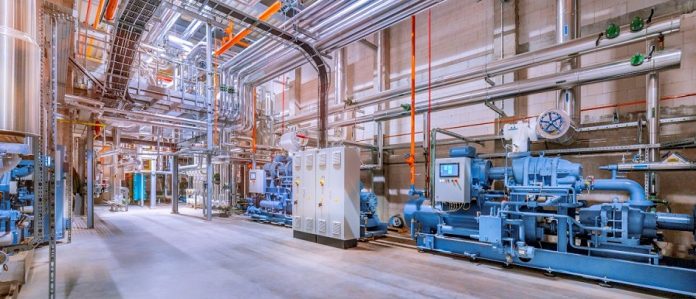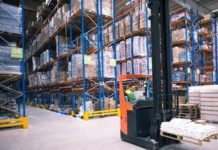GEA Refrigeration Technologies, the GEA division specializing in industrial refrigeration, has joined the Cool Coalition led by the UN Environment Programme (UNEP). By fostering dialog between governments, businesses, finance, and civil society, the initiative aims to drive the use of efficient, climate-friendly cooling in urban environments, buildings, and industrial processes worldwide.
Eco-friendly refrigeration will help the industry on its net-zero path
As the planet heats up, according to the International Energy Agency (IEA), it’s estimated that we will require 3.5 times more cooling by 2050 than today. At present, refrigeration and air conditioning systems already consume around 15 percent of global electricity production. In its new climate strategy, GEA recently announced it would prioritize driving sustainable innovation in technologies that remain energy-intensive, such as refrigeration technology. By joining the Cool Coalition, GEA is underlining its commitment to reduce its own greenhouse gas emissions along its entire value chain to net-zero by 2040.
“There is an urgent need for our industry and those it serves to become more energy-efficient to reduce greenhouse gas emissions. By joining the Cool Coalition, we aim to share our expertise and add impetus by facilitating the transition toward climate-friendly cooling and heating solutions. The Cool Coalition is a fantastic opportunity for us to take on even greater responsibility in tackling this challenge, and we are proud to be able to do our part,” says Kai Becker, CEO of GEA Refrigeration Technologies.
GEA and Cool Coalition committed to heat decarbonization
GEA Refrigeration Technologies’ commitment to delivering sustainable cooling and heating systems in the form of innovative heat pumps for heat decarbonization and the use of natural refrigerants with low to zero global warming potential aligns perfectly with the Cool Coalition’s objectives: “Today more than ever we need sustainable cooling solutions to tackle the climate crisis and achieve the sustainable development goals. We ought to raise the net-zero ambition for cooling to new highs with commitments from industry leaders. We are delighted to see GEA Refrigeration Technologies joining the Cool Coalition efforts and looking forward to GEA’s contribution in finding ways to decarbonize the cooling sector comprehensively by 2050,” said Lily Riahi, Cool Coalition Coordinator at UNEP.
SEnS: Sustainable energy solutions for the processing industry
For decades, GEA has been paving the way to forward-looking refrigeration technology with numerous initiatives and technological developments. For instance, the GEA Sustainable Energy Solutions (SEnS) program has combined plant process technology and utility solutions since 2018. Thanks to this interdisciplinary approach, customers from a wide range of industries benefit from energy-efficiency optimization strategies. Instead of going the usual route and treating heating and cooling as separate from the process technology for manufacturing consumer goods, for instance, the GEA cooling and process experts work for hand in glove when it comes to planning requirements and designing production processes.
GEA Refrigeration Technologies Chief Service Officer (CSO) Ulrich Walk explains this approach: “At GEA, we look at the big picture. That means analyzing the customer’s exact energy requirements before optimizing processes while taking utilities into account. By integrating heat pump technology with production processes, we create an energy loop, so nothing is wasted. We are reducing the energy needed, reusing the available energy, and upcycling the waste heat.” With about 60 percent of their energy costs attributable to heating and subsequent cooling, food manufacturers, for one, can improve efficiency in these processes by up to 70 percent.
IndiFoodBev — authentic, impactful and influential
An English-language food and beverage processing and packaging industry B2B platform in print and web, IndiFoodBev is in its third year of publication. It is said that the Indian food and beverage industries represent approximately US$ 900 billion in revenues which implies more than 20% of the country’s GDP. Eliminating the wastage on the farmside can help to deliver more protein to a higher number of the population apart from generating sizable exports. The savings in soil, seeds, water, fertilizer, energy and ultimately food and nutrition could be the most immense contribution that country is poised to make to the moderation of climate change.
To improve your marketing and grow sales to the food and beverage processing and packaging industry, talk to us. Our research and consulting company IppStar [www.ippstar.org] can assess your potential and addressable markets in light of the competition. We can discuss marketing, communication, and sales strategies for market entry and growth.
Suppliers and service providers with a strategy and budget for targeted marketing can discuss using our hybrid print, web, video, and social media channels to create brand recognition linked to market relevance. Our technical writers are ready to meet you and your customers for content.
The second largest producer of fruit and vegetables in the world is continuously expanding processing capacities and delivery systems with appropriate innovative technologies. We cover product and consumer trends, nutrition, processing, research, equipment and packaging from farm to thali. Get our 2025 media kit and recalibrate your role in this dynamic market. Enhance your visibility and relevance to existing markets and turn potential customers into conversations. Ask for a sample copy of our bi-monthly in print or our weekly IndiFoodBev eZine each Wednesday.
For editorial info@ippgroup.in — for advertisement ads1@ippgroup.in and for subscriptions subscription@ippgroup.in
Naresh Khanna – 10 February 2025
Subscribe Now












